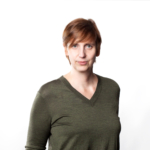
Research and design are experimental procedures that are aimed at producing something new. They both have project character, because they lead to a zero point of knowledge. What are the strategies and procedures that translate insights, assumptions, and ideas into concrete design?
Research processes in design challenge a traditional understanding of scientific methods: They alternate between rule-guided procedures and their constant transgression. They contain a certain blurriness and, yet, are subject to the compulsion to precision and explication. Design research oscillates between analysis and synthesis and is oriented towards something that initially only exists as a possibility. Therefore, the work of design researchers does not begin in a phase in which precisely defined problems need to be solved in a standardized way. Instead, it begins with the problem construction. Accordingly, the methods applied are not rigid process techniques, but rather experimental ways of producing something that we do not yet know. At the same time the methods are ways to question one’s own creative thinking and acting.
In order to combine the different knowledge practices and design approaches used for design research, Prof. Dr. Carolin Höfler, head of the area of expertise »Design Theory and Research«, has started a methods lab. In scientific seminars and project-based workshops, bachelor and master students deal with methods and media of design research. Concrete methodical practices are identified, examined and developed in laboratory-like situations.
In the summer semester of 2020, the focus of the lab was on methods of reflexive ethnography, open source investigation methods, design analysis techniques, as well as forensic design processes.
An intensive reading of relevant texts from the theory of art, design and architecture, the history of science and ethnology as well as the production of a glossary of design research practices formed the framework of the scientific seminar “Knowing [by] Designing” in the BA program. An interactive and collaborative »Word Map of Design [Research] Practices« and a booklet were the results of a workshop in the MA program.
In the summer semester of 2021, the focus was on concepts, practices, and media of radical pedagogy in art, design, and architecture. In particular, reform approaches from the 1960s and 1970s were examined, which opened up new learning spaces of design and set new standards both materially and ideally: emancipation instead of tradition, self-determined appropriation instead of prescribed mediation, participation instead of exclusion. The following questions arose: How is knowledge created? Why is a learning environment political? How can design learning and design universities be organized differently? What spaces does design learning need? What experimental forms of design learning and teaching were tried out in the 1960s? How can design educational potentials be activated in urban spaces today? These and related questions are also addressed by a glossary of design learning produced as part of the scientific seminar »Open Universities: City of Participatory Visions«.
Diagram: Yvonne Lober
